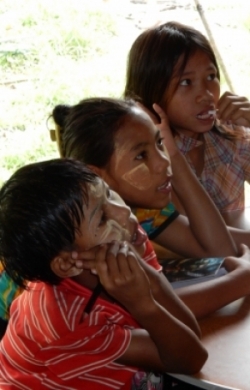
Galleries:
Annual reports:
You can see how our work has developed by reading some of our current and recent annual reports:
S4SK & H4SS Report and Appeal 2022
S4SK & H4SS Report and Appeal 2021
S4SK & H4SS Report and Appeal 2020
S4SK & H4SS Report and Appeal 2019
S4SK & H4SS Report and Appeal 2018
S4SK & H4SS Report and Appeal 2017
S4SK & H4SS Annual Report 2016
S4SK & S4SK-M Annual Report 2015
S4SK & S4SK-M Annual Report 2014
Safeguarding: We take care to safeguard the children and their families. You can find the safeguarding policy of S4SK here, and that of PALM here. The trustee currently responsible for safequarding issues is Sheila Kaye (s4sk.safeguarding@gmail.com). In addition to formal policy, the following aspects of S4SK and PALM help ensure safe environments for our children and families:
- The children we help are from families that are very, very poor, and thus arevulnerable to being trafficked, or otherwise pushed into crime or prostitution. Such is their economic level that even a medical or dental bill can force their families into debt. Some of the children in our classes have had 'near misses' with traffickers. From the start, we have tried to address the economic needs of families alongside providing education to the children. In parent education sessions, we try to make both children and their parents aware of the dangers, and help them think through precautions.
- Both S4SK and PALM have written policies for child protection and, in the case of H4SS, this has been backed up by training of staff and teachers provided by Save the Children. We take particular care to monitor the situation when students are placed with local businesses for work experience, or are taking part in a project organised by another NGO.
- The greatest safeguard lies in the degree of community involvement in the way our non-formal education (NFE) classes are set up. Every class begins with a meeting of community leaders, parents, and local officials, to assess the problem of out-of-school children in the locality, and decide whether to open an NFE class. If the outcome is positive, a non-formal education and child protection committee (NFECPC) is set up. The NFECPC then finds the classroom, helps identify families with working children, and suggests educated people in the locality who could be trained as teachers. The NFECPC then oversees its class (or classes) throughout the year, serving as a parallel communication channel, there to share any complaints directly with the PALM office, with the Advisory Board or, more likely, with the mentors when they visit.
- Our teachers are trained to be social workers too, and visit the home of every student in order to learn about, and help with, any problems before they become large. There are parent education workshops too where a range of lifestyle issues are raised, including risks to children, and parents are encouraged to attend class, along with their children, if they wish. The advantages of this system in relation to safeguarding are that the people we appoint as teachers already have roots in the community they serve, are known and trusted locally, and generally are able to develop a good rapport with parents.
- There is regular contact between S4SK and PALM, and the Managing Trustee of S4SK visits Myanmar regularly, meets the PALM Advisory Board, staff and teachers, and visits classes on a regular basis. Creating safe environments for children is very much on the agenda of both organisations.
- In order to avoid any sense of obligation by poor families to foreign donors, we have a policy of not putting donors in direct contact with individual children, and the identities of younger children are protected in our publicity material. All visitors to PALM classes, including representatives of S4SK, are invariably accompanied by PALM staff.






